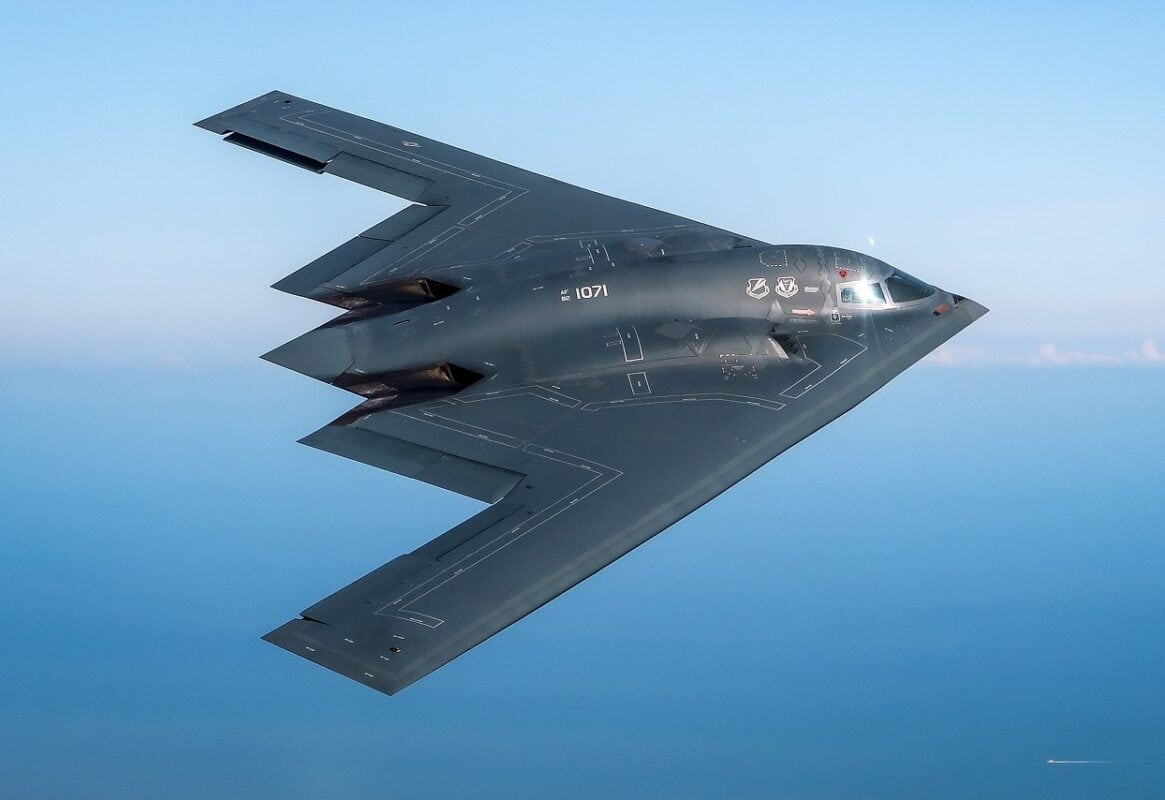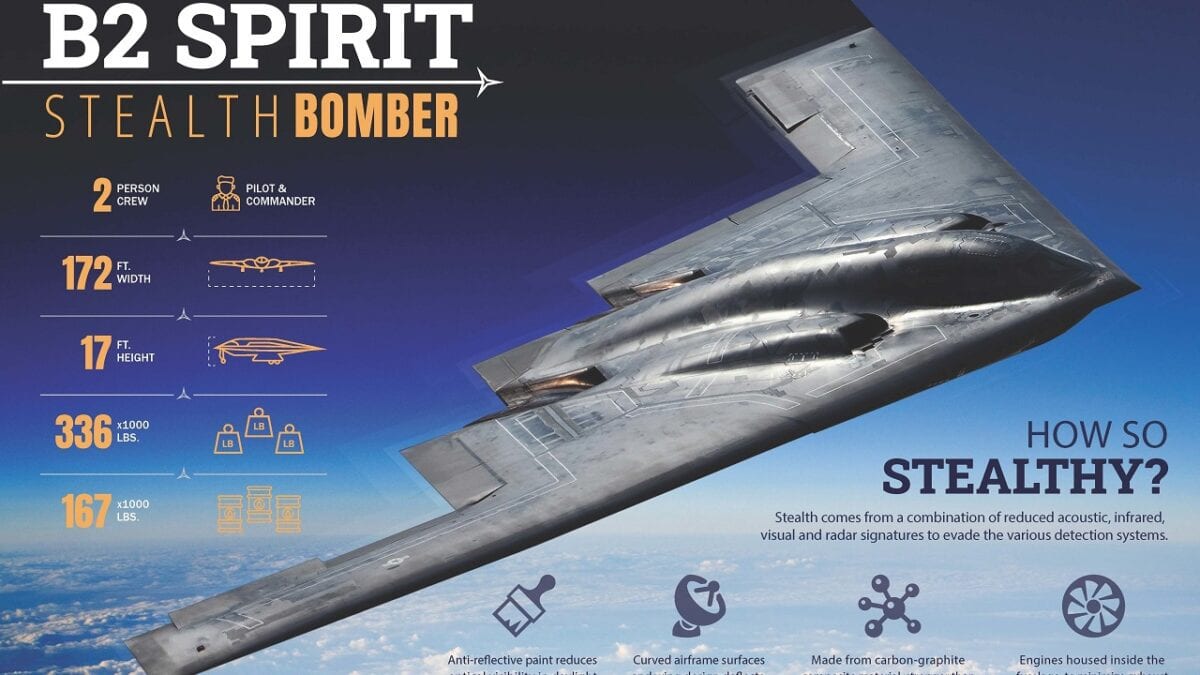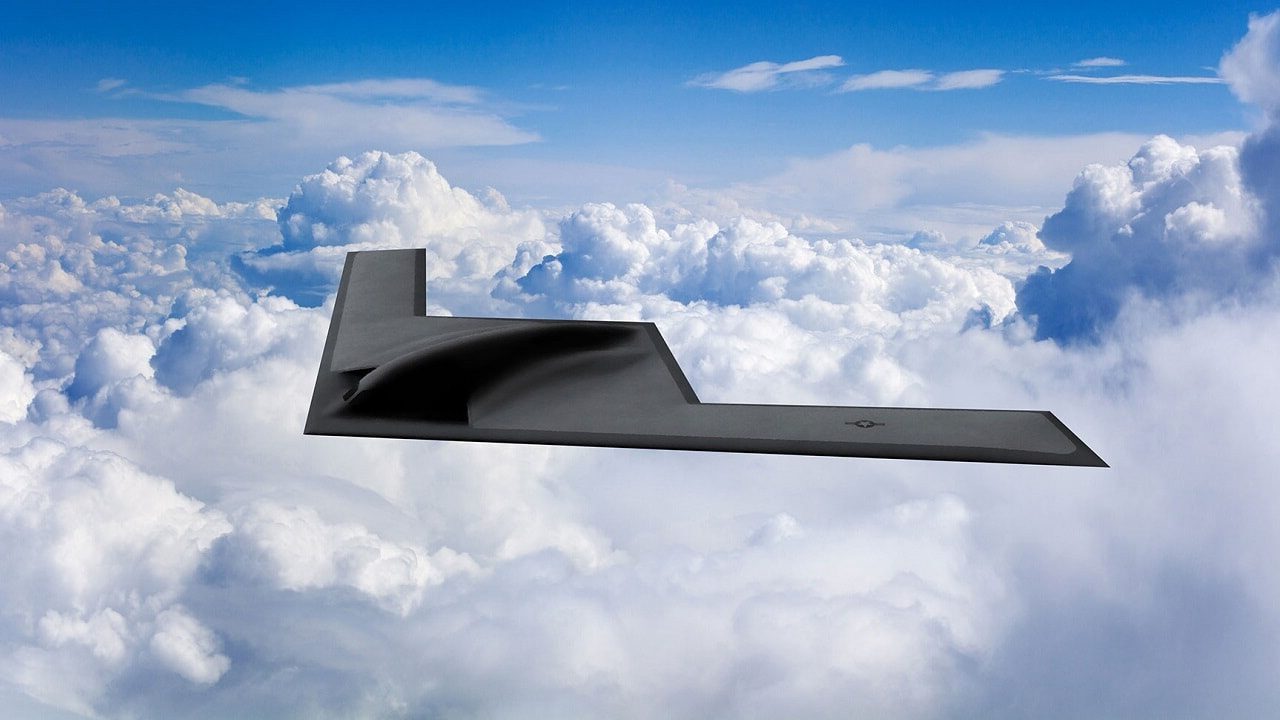The B-21 Raider Seems to be an Affordable Bomber? How Did They Do It? – An all too common criticism of today’s most advanced military hardware, especially aircraft is the cost. Hardly a week goes by without some news report citing the high cost of the Lockheed Martin F-35 Lightning II, and lawmakers have spent much time debating the fact that it will be the most expensive military platform ever developed – while often failing to address its advanced capabilities.
By contrast, there have been far fewer concerns about the Northrop Grumman B-21 Raider, the United States Air Force’s now in development long-range, heavy strategic bomber that is set to enter service by the end of the decade – initially replacing the B-1B Lancer, while operating alongside the B-2 Spirit and B-52. Eventually, the B-21 Raider will supplant those latter two aircraft as well and will become the Air Force’s sole bomber.
The Air Force has estimated that the B-21 is likely to cost around $203 billion to develop, purchase and operate over the next 30 years. That is actually under budget, but it was also noted that the cost of the aircraft was capped at $550 million each in base year 2010 dollars, or $729.25 million in current dollars. That figure was based on an average cost per unit over a production run of about 100 airplanes. Moreover, the early examples of any military aircraft will tend to cost the most – when the learning curve is the highest, and when the most tweaks to a design will need to be made.
B-21 Progress is Steady
A key factor that has helped keep costs down is that the Raider program has steadily progressed. While it can’t be rushed, it has faced only minor delays. In fact, there are now at least six B-21s in various stages of construction, and the first of the Raiders – named to honor the members of the World War II “Doolittle Raiders” that conducted the first air attack on Japan – is now undergoing calibration tests. The aircraft will soon be moved outside Northrop Grumman’s Palmdale, California production plant for engine runs and taxi tests prior to its maiden flight.
In addition, just as the aircraft is being developed, the service has worked to ensure that its future home will be ready. Multiple support facilities are now being constructed at Ellsworth Air Force Base (AFB), South Dakota.
Republican Congressman Dusty Johnson, representing South Dakota’s at-large congressional district since 2019, praised the efforts to build the bomber and the facilities and stated that the B-21 would take on an essential part of this nation’s deterrence force.

B-2 Bomber. Image Credit: Creative Commons.
“China and Russia have the capacity to strike us almost anywhere in the world, almost anytime they want,” Johnson said. “It is important that we have deterrence. It’s important that we have platforms like the B-21 that can project American force across the globe at a moment’s notice.”
B-21 Building on the B-2
Though the B-21 is much more than an upgraded B-2 – even as some experts have suggested the new aircraft is essentially a “B-2.1.” The naming is actually somewhat of a coincidence and an unfortunate one at that as it has led to misinformation. The “21” actually refers to the “21st” century, but aircraft numbering is always a confusing thing.
Indeed, the B-21 is not a significantly new design, but Northrop Grumman was able to make such progress as they successfully utilized information gained from creating the B-2 Spirit. The new bomber is slightly smaller and features some notable design enhancements.
In an interview with Breaking Defense last August, Steve Sullivan, vice president of the company’s Strike Division explained how Northrop Grumman was able to apply new innovations in supportability to the program.

191209-N-HG846-2001 NORFOLK,Va. (Dec. 9, 2019) This poster is designed to communicate the aircraft specifications of the B2 Spirit Stealth Bomber. The B2 bomber was introduced on Jan. 1, 1997, by the Northrop Corporation.
“The B-21 Raider, our team has made maintainability an equally important requirement to stealth performance, and the results have been better than we could have hoped,” said Sullivan. “Through the application of lessons learned on B-2 and other stealth aircraft, and the use of digital engineering techniques, not only do we have a design that has significantly improved over the B-2 from both survivability and aero-performance perspectives, we also now have a coating system that is as revolutionary in its maintainability as the original B-2 systems were in their stealth performance.”
In other words, the wheel didn’t need to be “reinvented.” The B-2 Spirit was a revolutionary leap forward, whereas the B-21 Raider is the next evolutionary step. It promises to be improved and enhanced – perfecting what was already near perfection. And the good news is that it won’t cost taxpayers as much this time.
Expert Biography: A Senior Editor for 1945, Peter Suciu is a Michigan-based writer who has contributed to more than four dozen magazines, newspapers, and websites with over 3,000 published pieces over a twenty-year career in journalism. He regularly writes about military hardware, firearms history, cybersecurity, and international affairs. Peter is also a Contributing Writer for Forbes. You can follow him on Twitter: @PeterSuciu.

